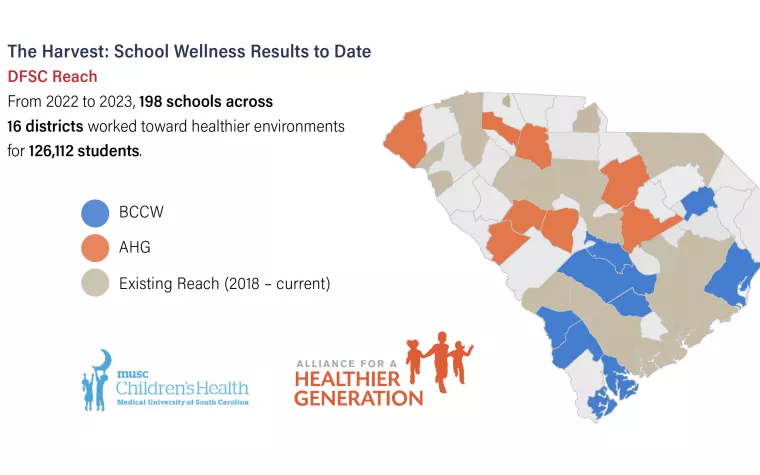Preventing Diabetes Through Healthier School Environments
Until about 1980, Type 2 diabetes was never seen in people under 40 years of age. Since then, however, younger and younger people have become affected by this condition.
This has been driven, in large part, by changes in environments and norms. These include a preference for calorie-dense, nutrient-poor foods, and limited opportunities for physical activity. Overwhelming evidence shows that the earlier the intervention to change these habits, the better. The healthier the environment and lifestyle during childhood and youth, the lower the risk of diabetes in adulthood.
Children spend more time at school than in any other environment away from home. Schools provide a unique opportunity for partnerships focused on the child’s social, psychological, physical, and intellectual development. To ensure that children across South Carolina can experience healthier school environments, DFSC is supporting two complementary organizations that focus on school-based wellness.
Alliance for a Healthier Generation works with more than 1,000 schools across South Carolina. The organization is the recipient of the National Healthy Schools Award in recognition of their efforts.
Alliance for a Healthier Generation
The MUSC BCCW provides targeted wellness initiatives to school districts across the state. The initiatives work to improve nutrition, increase physical activity and enhance social emotional wellness for students and staff.
MUSC Boeing Center for Children’s Wellness
Both organizations work with public school districts across the state and have been awarded three years of funding to address policy, systems and environmental challenges.
The overall goal is to increase opportunities for physical activity and healthy eating, thus reducing the risk for diabetes and other chronic diseases in adulthood. The two programs are being closely coordinated, and uniform outcome metrics will be defined, collected, and analyzed to monitor progress.


The walking group has been beneficial for our students. It has had a positive impact on mental health and productivity.